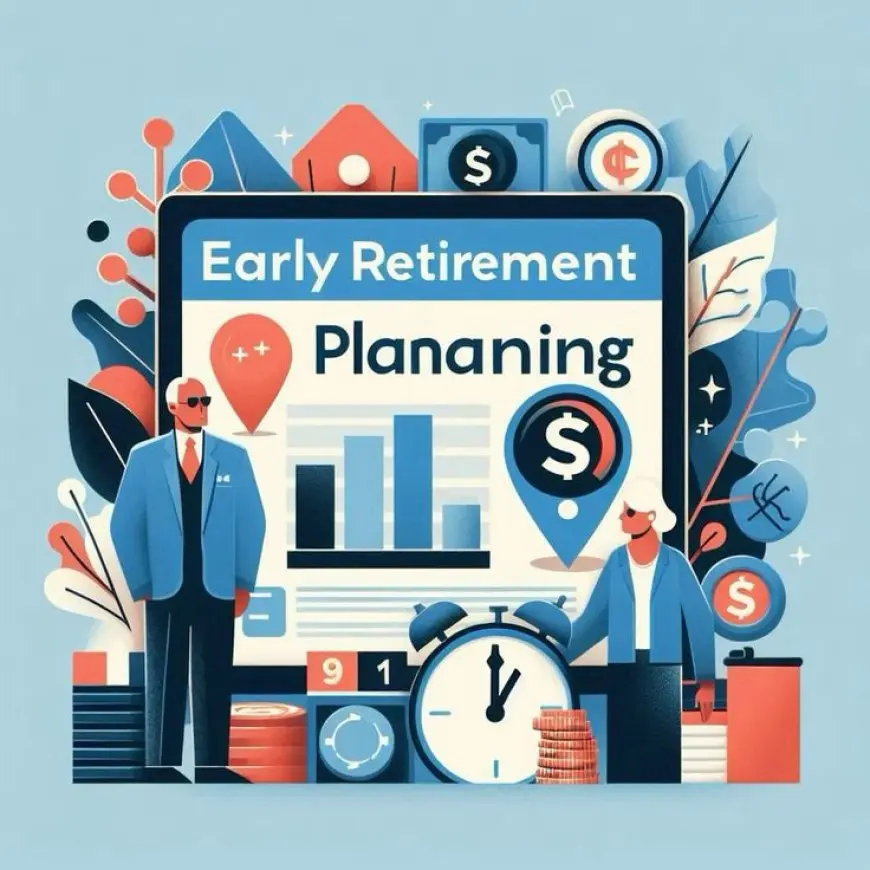Planning Your Finances for Early Retirement
Planning Your Finances for Early Retirement

Early retirement is a goal that appeals to many, offering the freedom to pursue passions, travel, or simply enjoy life on your own terms. Achieving it requires meticulous financial planning, disciplined saving, and strategic investments. Proper preparation ensures that you can maintain your desired lifestyle while safeguarding against unforeseen expenses.
Assess Your Retirement Goals
Begin by defining what early retirement means to you. Consider factors like the age at which you plan to retire, your desired lifestyle, and any specific goals you have for this phase of life. Will you downsize your home, travel extensively, or start a hobby-based business? Clarifying your vision helps you calculate the financial resources you’ll need.
Calculate Your Financial Needs
Estimate your post-retirement expenses, including housing, healthcare, food, transportation, and discretionary spending. Factor in inflation, as costs will likely increase over time. A general rule of thumb is to aim for 70-80% of your pre-retirement income annually, but this varies based on individual circumstances and lifestyle choices.
Build a Retirement Savings Plan
Start saving as early as possible. Maximize contributions to retirement accounts like 401(k)s, IRAs, or equivalent plans in your country. Take advantage of employer matching contributions and explore additional investment vehicles, such as taxable brokerage accounts, to supplement your savings.
Diversify Your Investments
A well-diversified portfolio is essential for long-term financial growth. Include a mix of stocks, bonds, real estate, and other assets to balance risk and reward. As you near retirement, gradually shift your portfolio toward less volatile investments to protect your wealth.
Minimize Debt
Eliminating debt is critical when planning for early retirement. Pay off high-interest debts, such as credit cards and personal loans, as quickly as possible. Aim to retire without a mortgage or car payments to reduce fixed monthly expenses.
Consider Healthcare Costs
Healthcare can be a significant expense in retirement, particularly if you retire before qualifying for government-supported programs like Medicare in the U.S. Research health insurance options, including private plans or early retirement health coverage offered by your employer. Set aside additional funds to cover medical emergencies.
Establish Passive Income Streams
Passive income can provide financial stability in retirement. Consider investing in rental properties, dividend-paying stocks, or creating a side business that generates income without requiring significant active involvement. This additional income reduces the need to draw heavily from your savings.
Create an Emergency Fund
Even in retirement, unexpected expenses can arise. Build an emergency fund with at least 6-12 months’ worth of living expenses to cover unforeseen events without jeopardizing your retirement funds.
Monitor and Adjust Your Plan
Planning for early retirement is not a one-time task. Regularly review your financial progress, investment performance, and expenses. Adjust your plan as needed to account for changes in your goals, market conditions, or personal circumstances.
Work with a Financial Advisor
Navigating the complexities of early retirement planning can be challenging. A financial advisor can provide personalized advice, help you optimize your savings, and ensure you’re on track to achieve your retirement goals.
Planning for early retirement requires a proactive approach and a commitment to financial discipline. By setting clear goals, saving aggressively, and investing wisely, you can create a secure financial foundation that allows you to retire on your terms and enjoy the freedom you’ve worked so hard to achieve.







